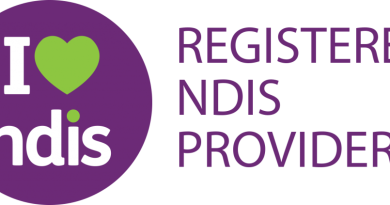What Should Me and My Partner Do Before Trying to Conceive
You and your spouse might be ready to have a baby and start a family, but there are a lot of things involved in the process. Before scheduling an appointment with a fertility specialist, you should consider a few things. They can help you and your partner prepare for the day-to-day reality of pregnancy. Here are ten things you and your spouse should do before trying to get pregnant:
1. Start a Preconception Health Program
Before starting a family, you need to get healthy. This means making some adjustments to your daily routine and lifestyle choices. A preconception health program helps you plan and make these changes before becoming pregnant. It includes tips from quitting smoking and limiting alcohol consumption to taking your meds correctly. Getting healthy before conception gives you the best chance of a healthy pregnancy and a healthy baby.
2. Begin Fertility-Boosting Supplements
There are a lot of supplements that can help boost fertility and make getting pregnant easier. Some of them include vitamins, minerals, and herbal compounds. Some of these supplements may help to regulate your menstrual cycles, while others can reduce stress and boost your overall health.
3. Get Physically Prepared for Pregnancy
Before conceiving, you need to get your body ready for pregnancy. This means changing your eating habits, exercise routine, and lifestyle choices.
If you smoke, use drugs, or drink alcohol, stop.
Begin an exercise program that includes strength training and cardiovascular conditioning. Don’t eat a lot of fat, and work on reducing your weight. Underweight women or those with eating disorders should consult a fertility specialist about the best weight for pregnancy.
4. Stop Taking Birth Control Pills
You need to stop taking contraceptives a couple of months before you start trying to get pregnant. This will allow your natural hormone cycle to return to normal, and you’ll know which time of the month you’re most fertile. It gives you time to adjust to the regular menstrual cycle and prepare for conception.
5. Limit Caffeine
Caffeine is a stimulant. You can get too much of it, and your body will have trouble balancing hormones. In women, this can cause extreme menstrual cramping and make it difficult to conceive. If you drink coffee or tea regularly, limit your daily consumption.
6. Visit a Fertility Specialist
Getting help from a fertility specialist gives you confidence that you’re doing everything possible to increase your chances of conception. Fertility specialists understand all aspects of fertility and pregnancy, including how to time intercourse for conception. They can answer your questions and concerns. You should schedule an appointment with them as soon as you decide to start a family.
7. Cut Down on Stress
There are a lot of connections between stress and fertility. If you are stressed, your body produces the hormone cortisol, which damages healthy eggs. This hormone has an impact on ovulation and menstrual cycles. This lays the foundation for issues like PCOS, infertility, and early menopause. Stress-related problems can make getting pregnant much harder.
8. Get Tested for STDs
A sexually transmitted disease (STD) can make it harder to get pregnant. Some STDs may cause permanent damage to a woman’s reproductive organs and make pregnancy problematic, if not impossible. The most common STDs include chlamydia, gonorrhea, syphilis, herpes, HIV, and HPV. Some of these diseases are asymptomatic, so you must undergo regular STD testing.
9. Asses Your Financial Stability
Your financial stability plays a significant role in a future pregnancy. If you can’t afford to take care of a baby, you might decide to stop trying. You should be financially stable to afford the costs of being a parent, such as daycare and cribs. Both of you should take the time to think about your financial status. You’ll need to consider your job stability, income, debts, and budget.
10. Know Your Family Fertility Health History
Family fertility health history is a key part for any couple to know before trying to get pregnant. It gives you and your partner clues about your fertility health and the kind of pregnancy you may have. Ask your parents if they had any miscarriages, stillbirths, or children with congenital disabilities. Learn more about these issues by doing research on the internet or talking to a genetics counselor.
Visit A Fertility Expert Today
You can learn everything you need about conceiving by consulting a fertility specialist. They have experience in the field and can help you with any questions or concerns.
You need to understand your body, how fertility and conception work, what issues may arise during pregnancy, and what’s expected as a parent. This information should guide you as you and your partner start trying to conceive.




